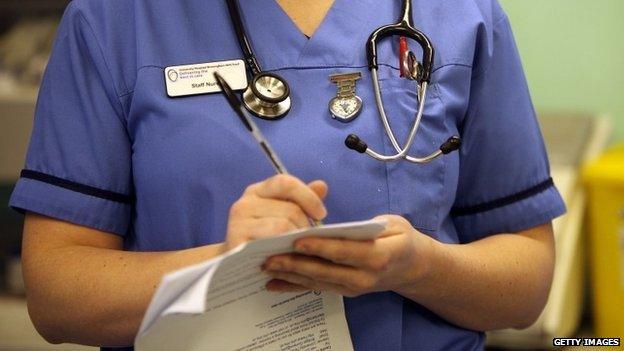Public sector strike: Army to drive London ambulances
- Published
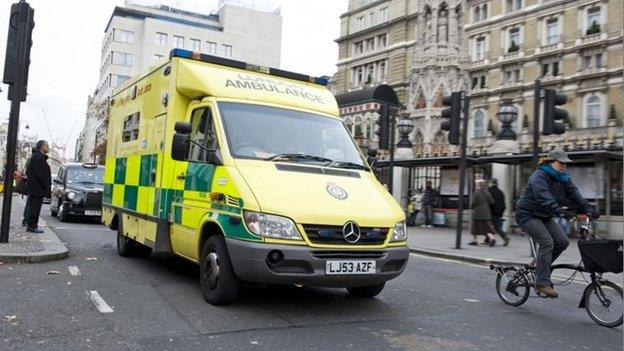
Ambulance drivers across England are striking for four hours on Monday
Military personnel and police vans are being drafted in to help ambulance services affected by a public service workers strike on Monday.
About 130 military drivers will replace striking London Ambulance Service and North West Ambulance Service drivers, the Ministry of Defence said.
In London, 74 police vehicles will also be used for low-priority calls, a Metropolitan Police spokesman said.
Unison, whose members are striking over pay, called the move a "quick fix".
It said it had arranged emergency plans for Monday with all the other ambulance trusts in England.
Women in labour
NHS workers in England will strike for four hours from 07:00 BST on Monday, with a number of public sector unions planning further industrial action over pay during the rest of the month.
One hundred military drivers will be drafted into London while 30 will assist ambulance services in the North West.
London Ambulance Service (LAS) has said patients in a life-threatening situation will still receive an ambulance response, but people with injuries such as minor breaks, or women in routine labour may not.
It has said there will be an impact on services for the whole day.
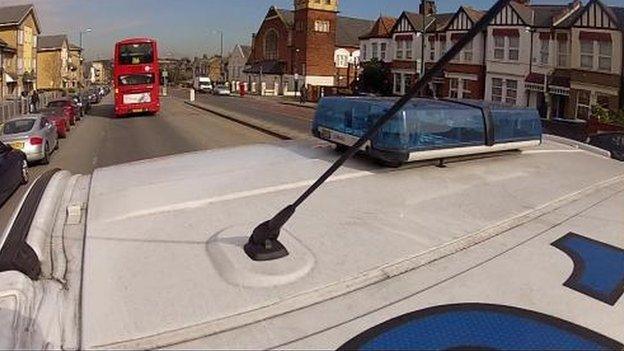
The Met Police will provide 74 response vehicles on Monday
North West Ambulance Service has also warned that with a "substantial reduction in its workforce" there will be delays for some patients.
Police vehicles
East Midlands, South Western, South Central and South East Coast Ambulance Services have all confirmed they have staff members who will also be on strike on Monday.
LAS director of operations Jason Killens said: "We are expecting a significant number of our staff to take four hours of strike action.
"The Ministry of Defence (MoD) is providing 100 military drivers during the strike action. They will support our clinical staff by driving our vehicles to an incident while our medics look after the patient."
An MoD spokesman confirmed its involvement and said personnel from the Army, RAF and Navy would be involved.
A spokesman for the Met Police said: "The LAS will attempt to deal with higher priority calls.
"Lower priority calls will be passed to 'double-staffed' police vehicles and an assessment made as to whether the patient requires transport to hospital or can obtain treatment any other way.
"If an ambulance is required, officers will wait with the patient until the ambulance arrives."
Merseyside Police will assist the ambulance service by making five police vehicles available for use with first-aid trained staff, a spokesman said.
Christina McAnea, Unison's head of health, said: "The fact the government did not even try to talk to trade unions to arrange emergency cover in the capital is outrageous.
"Instead they've decided to deploy military troops as a quick fix.
"We have agreed emergency plans with all the other ambulance trusts in England."
Rehana Azam, national officer of the GMB said the union had written to the chief executive of LAS with concerns about using the Met and military drivers.
He said: "GMB does not accept that this is last-minute contingency planning but a deliberate attempt by government to cause concerns among the public and to undermine the hard work of LAS staff taking strike action."
Action 'disappointing'
The Royal College of Midwives is also joining the action on Monday, in what will be the first walkout in its 133-year history.
The walkouts will be followed by four days of action short of a strike from Tuesday.
The government imposed a 1% cap on pay rises in 2012, which remains in place for many in the public sector.
A Department of Health spokesman said: "We are disappointed that trade unions are taking industrial action.
"NHS staff are our greatest asset, and we've increased the NHS budget to pay for over 12,500 more clinical staff since 2010.
"We cannot afford a pay rise in addition to increments - which disproportionately reward the highest earners - without risking frontline jobs."
- Published9 October 2014
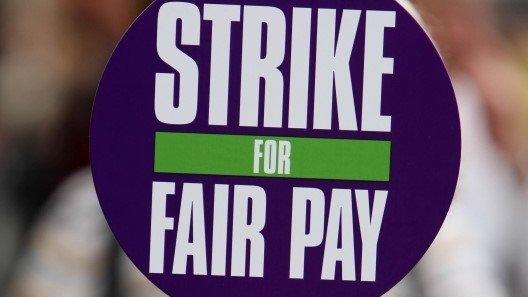
- Published8 October 2014
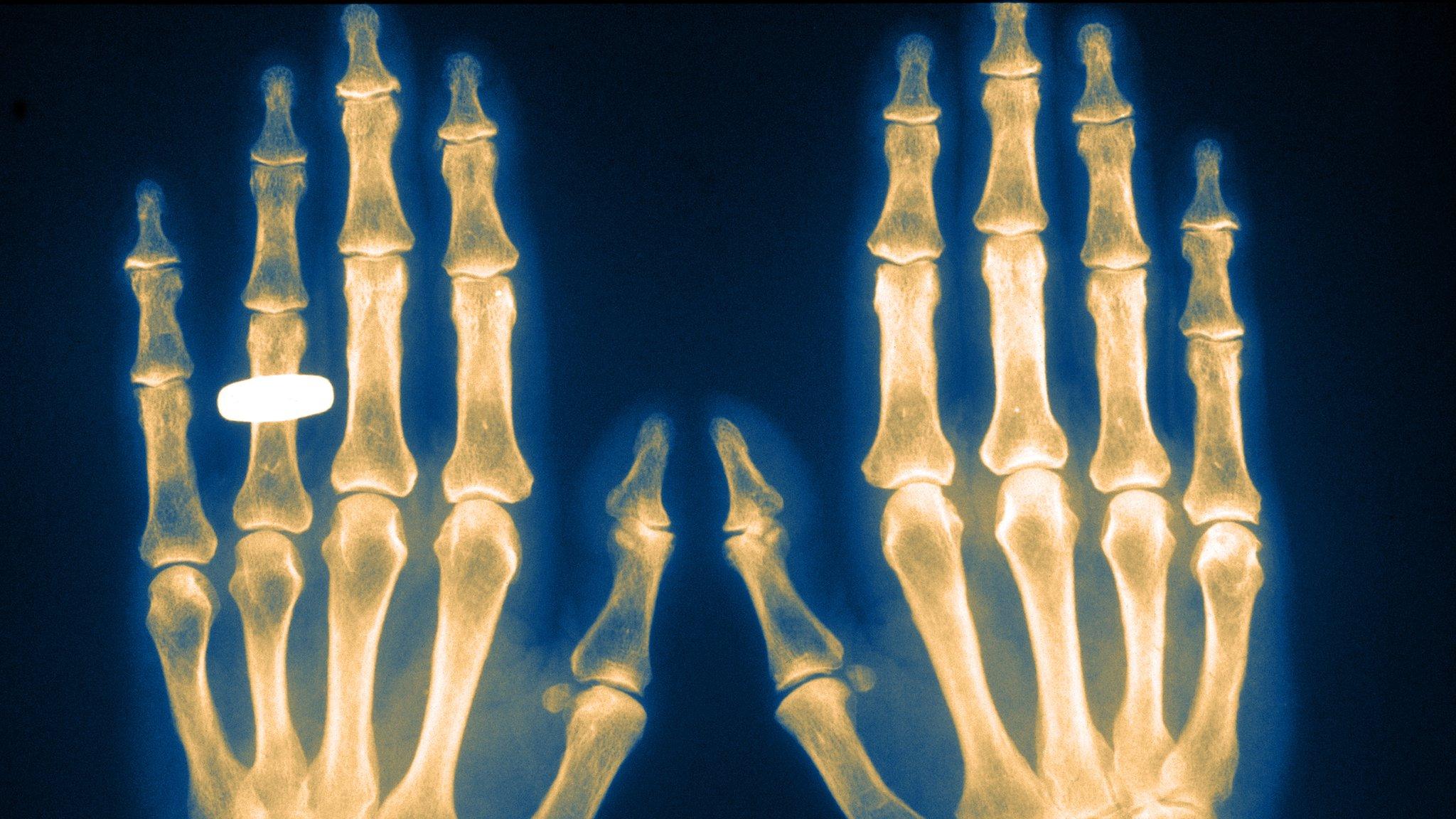
- Published1 October 2014
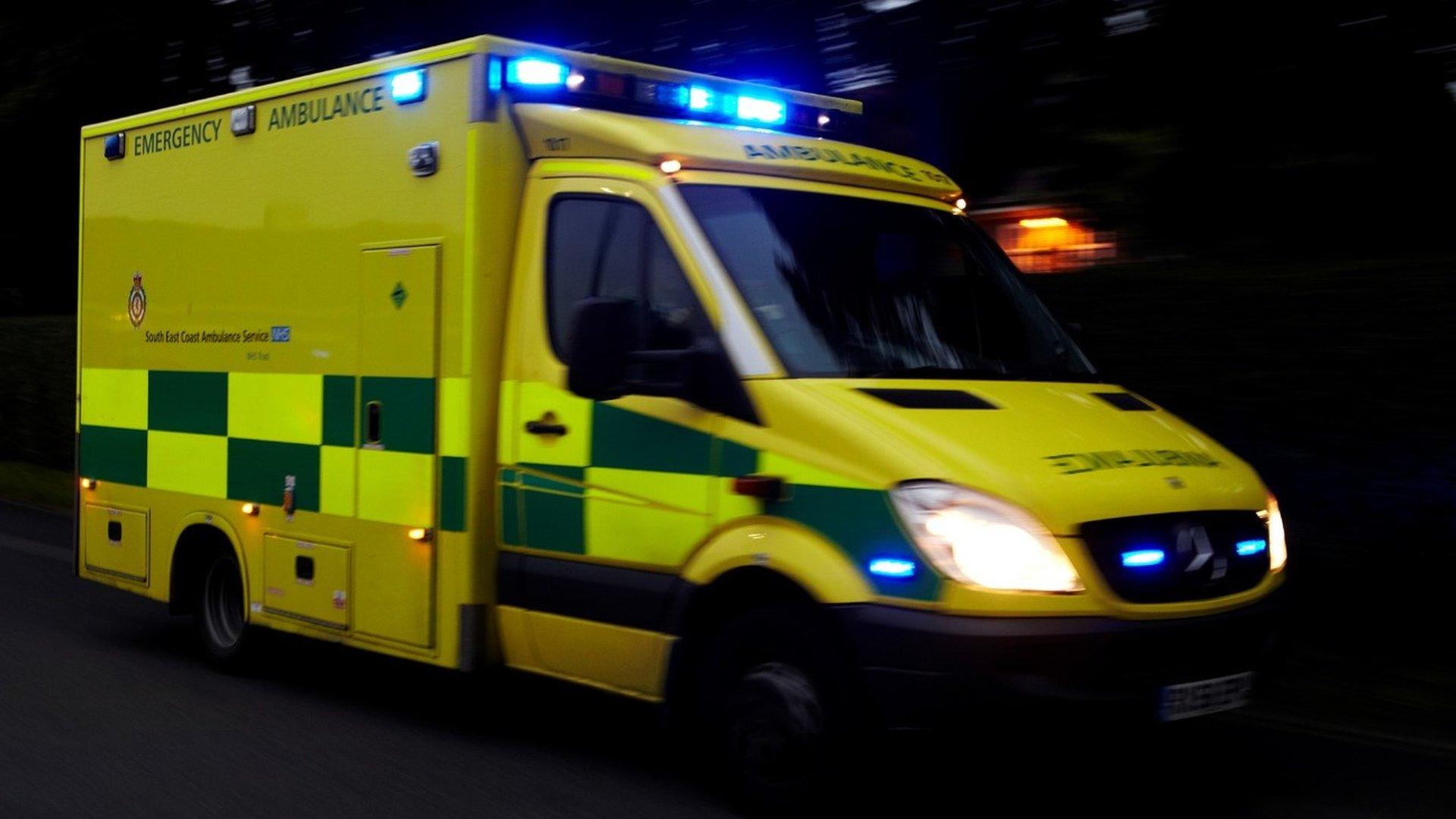
- Published29 September 2014
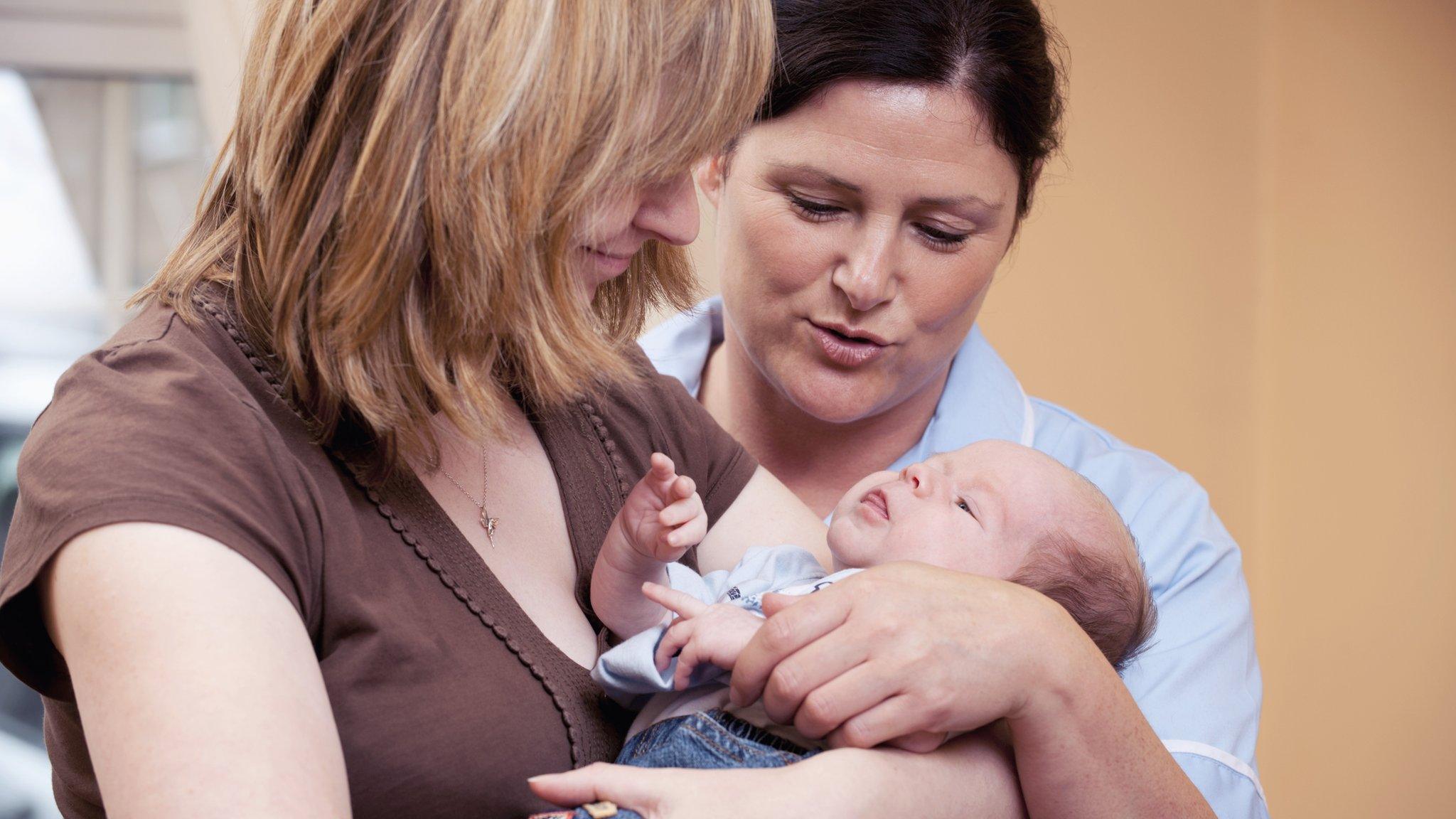
- Published24 September 2014
